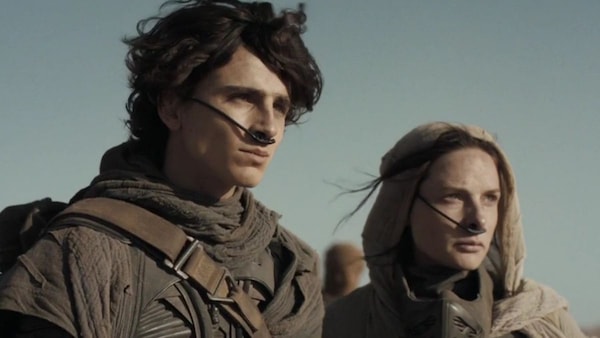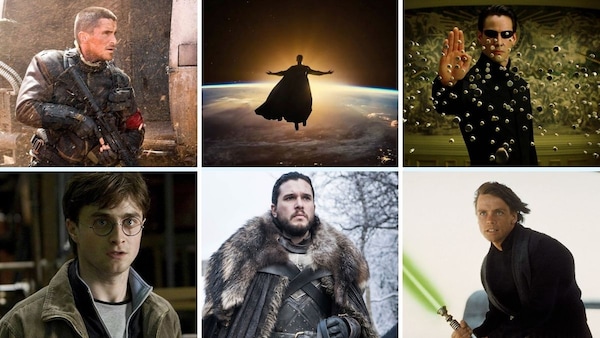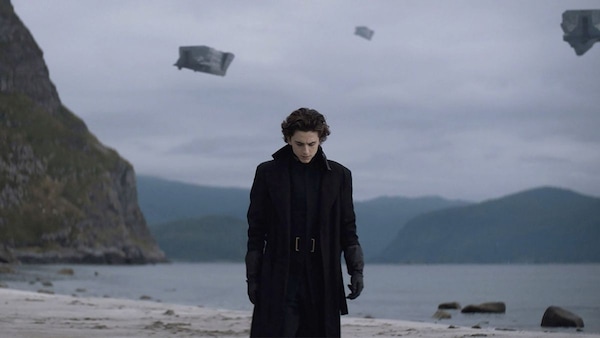Dune: Why the messianic trope remains popular in films and television
Denis Villeneuve’s Dune, based on Frank Herbert’s novels, is arguably the best film of the year

Last Updated: 06.33 PM, Nov 28, 2021
Timothée Chalamet’s opening scene in Dune is indicative that Denis Villeneuve hasn’t shied away from dabbing into a few familiar tropes which have been integral to several stories adapted from novels. In his defence, it was vital these tropes were incorporated into the film as the original novel written in 1965 was among the first epic sci-if/fantasies stories to introduce the aforementioned tropes. If Villeneuve had made the creative decision to exclude them from it, it would've taken away the very essence of the universe Herbert created in his trilogy.
The opening scene in question depicts the reluctant future leader, Paul of House Atreides, and it is followed up with his mother, Lady Jessica (Rebecca Ferguson), training him in the ways of the ancient order of the Bene Gesserit - a powerful religious sisterhood, with superhuman abilities, that pulls the political strings from behind the scenes across the galaxy. One might argue that they are the most powerful organisation in the film, one that wields more power than even the emperor himself. Lady Jessica hopes that her son Paul is the much prophesied Kwisatz Haderach - the one who will lead mankind to prosperity.
It is a very obvious nod to Mary and Jesus, but the film is not a glorification of Christianity, it is in fact a reference to how mankind has always positioned messianic figures throughout history as saviours who would lead them to the fabled ‘promised land’. These are the same ideas populist leaders sell to the masses, the idea of a ‘strongman’, also known as the ‘strongman syndrome’. Humanity’s desperate need for a messianic figure to lead them to a Utopia is the reason why such populist leaders across the globe are able to gain an absolute majority in terms of support.

Storytellers have adopted this idea since the very first literary text was written. In more recent history, in the postmodern era after World War II, it has become more frequently used as the crux of several novels, films, television shows, and even video games. George R R Martin’s Jon Snow in A Song of Ice Fire saga and in HBO’s Game of Thrones is the prophesied ‘Prince that was promised’, Azor Ahai. John Connor in the Terminator series, Neo in the Matrix series, Luke Skywalker in the Star Wars series, Harry Potter, and even Kal-El/Superman in Man of Steel are examples of the Jesus archetype. Even the ridiculously overrated Kannada film KGF has adapted this trope as its central theme. Aloy from the popular video game Horizon Zero Dawn is the female iteration of such a character.

One would imagine an overused plot device and trope as such would have lacked a certain appeal to moviegoers, especially considering there was another Dune film released in 1984 starring Kyle MacLachlan and directed by David Lynch. This is where Denis Villeneuve has excelled, he has created something truly extravagant, with stunning visuals, and arguably the best sound design in any film in recent memory. Each frame and the background music that accompanies it adds a great degree of depth to each scene. Villeneuve hasn’t resorted to overtly stylised visuals or cringe-worthy one-liners to make certain scenes feel epic, and yet he has managed to achieve this with great effect in the manner in which he has framed these shots and the choice of music.

These are fundamental in establishing the significance of Paul and House Atreides - elevating the character and those around. The pastiche adapted in the film are from some of the finest cinema has to offer such as Stanley Kubrick’s 2001: A Space Odyssey (1968), Francis Ford Coppola’s Apocalypse Now (1979), and David Lean’s Lawrence of Arabia (1962). All of these elements are pivotal in establishing Paul Atreides as the messiah of this futuristic space odyssey. The choice of making a few cuts and alterations from Herbert’s original novels have seemingly paid dividends, as the film will most likely go down in history to being revered as one of the finest. Whereas, Denis Villeneuve, is quietly becoming one of the best at what he does after releasing several critical hits such as Prisoners (2013), Arrival (2016), Sicario (2015), and Blade Runner 2049 (2017). The sequel to Dune could become one of the most anticipated films of the decade.

